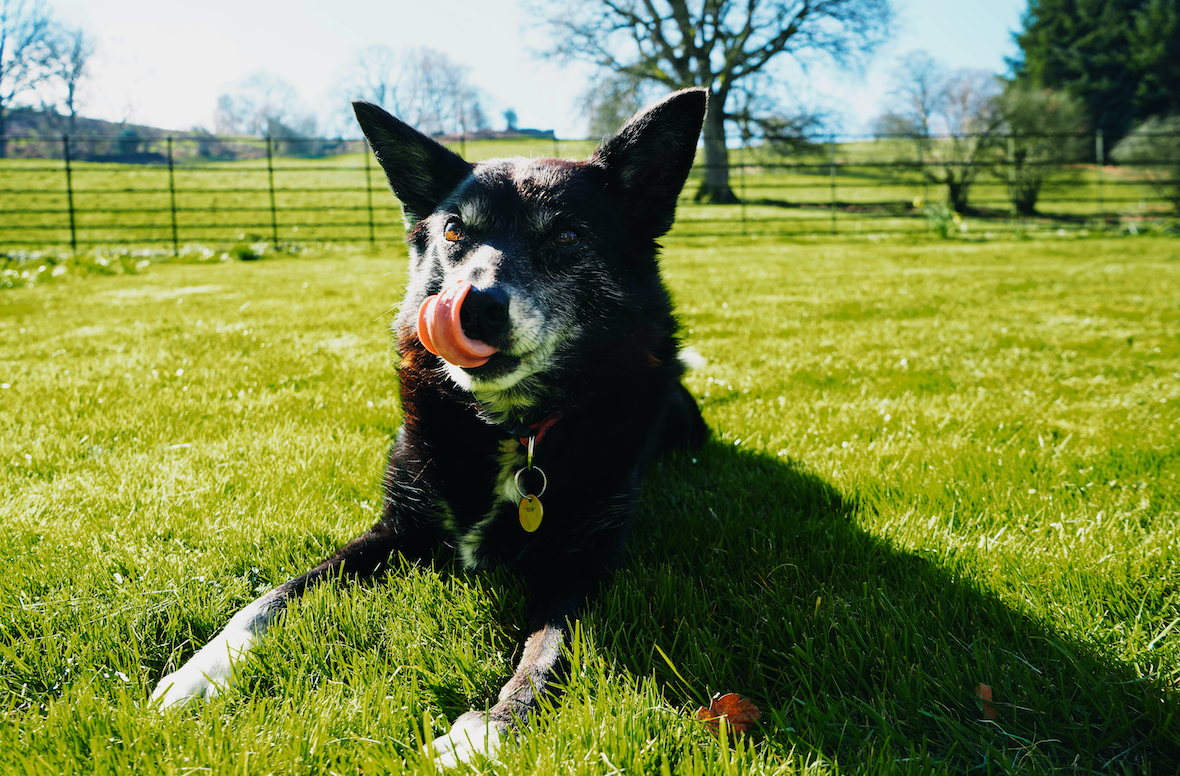What Happens to Your Pet’s Gut as They Age?
January 15, 2024

As pets age, their bodies go through tons of changes. Many of these changes affect their gut health. Whether your pet is a senior already or a teeny puppy, understanding your dog’s microbiome and how you can help maintain balance in their body are important.
Let’s check out what happens to our pets’ gut as they age and what we can do to help.
Your Pet’s Gut Microbiome
Our dogs and cats have a bunch of tiny microorganisms living in their digestive system that are really important for their overall health and well-being. As our pets get older, these microorganisms change, which can affect their stomach and their ability to fight off sickness.
For example, older dogs might have more bad bacteria and less good bacteria in their gut, leading to tummy troubles and a weaker immune system. Most of the body relies on gut health, but that’s a chat for another time.
Anyway, the goal for any pet’s gut is homeostasis (balance). A senior dog’s body has a hard time keeping up with making sure there’s a good balance of good and bad bacteria, which is why their immune system takes a hit.
There’s not just one single thing that affects our pet’s gut microbiome. It can be affected by what our pets eat, the germs they're exposed to, and the medicines they take. All of these can all mess with the balance of these microorganisms.
Digestive Disorders in Senior Pets
One of the most common changes in the gut health of senior pets includes reduced secretions and decreased enzyme production, leading to potential digestive disorders.
This can result in issues like:
- Malabsorption: Where the digestive system is unable to properly absorb nutrients from food, leading to weight loss even if your dog has a normal eating schedule.
- Constipation: Low enzyme production can make it harder for senior pets to digest food properly, leading to constipation.
- Inflammatory Bowel Disease (IBD): Aging can disrupt the balance of the gut microbiome, potentially leading to chronic inflammation of the intestinal tract.
- Colitis: Older pets may experience inflammation of the colon, often aggravated by an imbalanced microbiome.
- Pancreatic Insufficiency: This is a condition where the pancreas doesn't produce enough digestive enzymes, leading to poor digestion and nutrient absorption.
Boosting Gut Health with Diet
Proper nutrition plays a crucial role in maintaining pet gut health. As pets age, their dietary needs change which is why you often hear vets say, “Now that your dog/cat is in their senior years, it’s time to take a look at what they’re eating.”
Holistic veterinarians are extremely focused on nutrition, so if you’re searching for some help, that’s definitely a good place to start.
Senior dogs require more calories and easily digestible protein. Their metabolic rate slows down as they age, and their digestive system is less able to break down and absorb nutrients from food.
Antioxidants and Fiber
Antioxidants play a vital role in supporting the immune system of senior pets. Including antioxidant-rich foods, like blueberries or spinach, can help reduce oxidative stress and inflammation in their bodies. Even something as small as adding in one or two foods could positively influence their gut microbiome.
Ensuring an adequate intake of dietary fiber is also crucial for senior pets, as it supports digestive health and the growth of beneficial gut bacteria. Foods like sweet potatoes, pumpkin, and leafy greens can provide the necessary fiber to promote a healthy gut microbiome in aging pets.
Enzymes for Digestion
Enzymes are crucial for breaking down food and helping pets absorb nutrients from their diet. They work like tiny digestion assistants, ensuring that pets get all the good stuff out of what they eat. But, like that good bacteria, as pets get older, their bodies don't make as many enzymes which can of course lead to problems with digestion.
As we said earlier, older pets might have a harder time breaking down their food, which can result in less nutrient absorption and various stomach issues. Yes, it applies to digestive enzymes, too. It’s amazing how much the gut affects, right?
Dogs who have trouble with digestion and absorption might experience gas, bloating, or discomfort after eating.
In some cases, this can also lead to more serious health problems if their bodies aren't getting the necessary nutrients. Adding digestive enzymes to their routine may be necessary to maintain their health.
Sprinkle In Some Probiotics
By introducing beneficial bacteria on a daily basis, probiotics play a crucial role in maintaining a balanced gut environment as pets age.
This is especially important as senior pets may experience changes in their digestive and immune functions, making the support of a healthy gut microbiome essential for their overall well-being.
Saccharomyces boulardii, a probiotic yeast, has been found to offer unique benefits for aging dogs and cats and it continues working even if your pet needs antibiotics, which is definitely a rare attribute. This specific strain of probiotic is found in FullBucket Health’s Daily Dog and Daily Cat, among other important gut-positive ingredients, to help keep the GI tract strong, no matter your pet’s age.
Read More:
Effect of Saccharomyces boulardii in Dog with Chronic Enteropathies
Probiotics Regulate Gut Microbiota: An Effective Method to Improve Immunity

